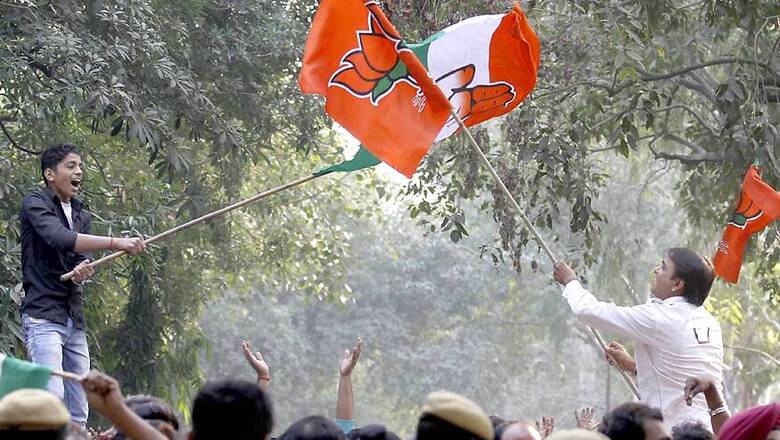
views
We are witnessing blatant attempts at religious polarization by key political figures in the upcoming general elections.
Different functionaries of the ruling party, including a chief minister, are openly making speeches invoking religious division and hate. Equally, upholding secularism doesn’t seem to be a priority for most political parties.
There seems to be no political counter to the hate-mongering nor is there any effort to remind politicians of their constitutional obligations on secularism.
Secularism may mean different things to different people but it is imperative to have a certain consensus on secularism in our multi-cultural and multi-faith country. It is equally imperative that citizens are not targeted and divided based on religious backgrounds.
There are several grey areas over the meaning and practice of secularism although it is a constitutional ideal. For one, Indian secularism would be somewhat different from the French or European variety. Our Constitution mandates separation of state and religion but also grants the citizens’ right to religion and religious freedom.
Our Constitution mandates that the state cannot have a religious preference or prejudice but citizens are free to follow their respective religions.
It calls for equal treatment of all citizens irrespective of faith, gender and caste. It is also mandated that the practice of one’s religion cannot be violative of any other citizen’s fundamental rights and freedoms.
Gandhi’s thinking on peaceful co-existence of different faith communities or “sarv dharma sambhava” remains intrinsic to a peaceful and harmonious India.
Unfortunately, our political parties have done huge disservice to the nation by trivializing or maligning the ideal of secularism depending on their respective ideologies.
The BJP has openly attacked secularism as a foreign notion and unabashedly pursued muscular majoritarian politics.
The Congress is guilty of paying lip sympathy earlier and not standing up in the face of Hindutva onslaught in current times. It has been adding to the ambiguity around secularism by making it synonymous to appeasement of certain Muslim conservatives.
Organising iftaars to patronising Shahi Imam to reversal in Shah Bano case to silence on triple talaq – are all examples of Congress brand of secularism. The controversial move to open the gates for shilanyas at the disputed Babri masjid- Ram Janambhoomi site is another illustration.
It has promised an end to hate crimes in its manifesto but their previous record during communal riots does not
inspire much hope. The Congress is continuing cow politics in MP and Rajasthan.
The BJP has openly rejected the secular ideal. It is bound to the RSS who have a stated dream of a Hindu Rashtra where minorities can at best be second class citizens.
Unfortunately, the secularism pursued by regional parties such as SP, BSP, TMC, RJD, NCP seems to be more or less similar to the Congress brand of secularism.
They do not seem to be averse to collaborating with Muslim conservatives when convenient. They remained silent over triple talaq and other patriarchal practices affecting Muslim women.
It is equally important to uphold secularism in society as much as in politics. Our Constitution does not call for atheism or faithlessness as a pre-condition to the practice of secularism.
Most leftists and liberals seem to overlook this aspect. It is important to acknowledge and appreciate the religiosity of ordinary people and work further to reinforce the longstanding plural fabric of society. Ordinary person’s religiosity must be distinguished from institutionalized religious bodies.
History tells us that religion can be a liberating force in society. Being secular does not mean judging those who are religious. Being secular means acknowledging the religiosity of fellow humans and working together for a peaceful co-existence.
My grandmother was extremely religious and fiercely liberal. Failure to appreciate religious feelings of ordinary Indians has led to secularism becoming an exclusive club.
Worse still it has driven ordinary people into the clutches of vested interests operating in the garb of religion. The rise of the religious right over the last two decades must also be viewed in this context.
We must trust the wisdom behind our Constitutional ideals on diversity, pluralism, religious freedom and secularism. India is united with all its multiple faith communities unlike some of her neighbors. All political parties need to unequivocally state their commitment to these ideals.
The writer is a women’s rights activist from India and one of the founding members of Bharatiya Muslim Mahila Andolan


















Comments
0 comment